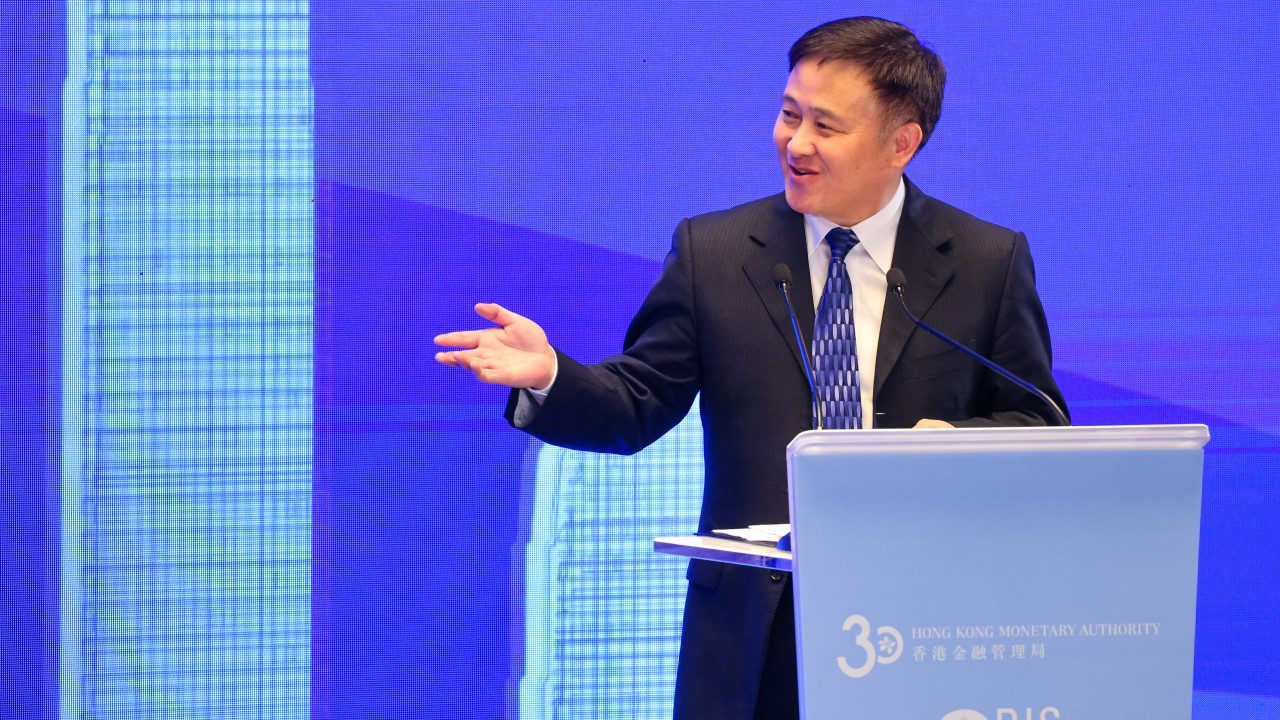
China is expected to see “healthy and sustainable growth” in the year ahead, even as it navigates the challenges of transitioning from a property sector-driven economic growth model to one focused on “high-quality” growth drivers, said Pan Gongsheng, the governor of the country’s central bank.
“Looking ahead, the Chinese economy remains highly resilient thanks to its strengths, such as innovation ability, big market, good infrastructure, well-established industrial chains, [and] rich and well-educated human resources, just to name a few,” Pan said during a keynote speech at the 2023 HKMA-BIS High-Level Conference on Tuesday.
While China’s traditional growth model – focused largely on infrastructure and real estate investment – has led to high growth in the past, such growth is unlikely to continue, he said. Instead, China’s policymakers are turning their attention towards “high-quality and sustainable growth”, and are focusing on improving the country’s economic structure and forming new growth drivers.
“The ongoing economic transformation will be a long and difficult journey, but it is a journey we must take.”
This shake-up in the property market, while challenging, is beneficial for China’s economic development in the long term, Pan said. Meanwhile, in the short term, financial regulators will continue to focus on mitigating any spillover risks by boosting housing demand and encouraging financial institutions and local governments to support developers.
High interest rates ‘set to endure’ as central banks tackle inflation
High interest rates ‘set to endure’ as central banks tackle inflation
“We encourage commercial banks to … provide financial support for the timely completion of pre-sold housing, and provide low-cost financing to local governments for them to purchase homes from developers,” Pan said. Financial institutions have also been asked to meet the “reasonable financing needs” of developers, as well as to help with debt restructuring and mergers and acquisitions (M&As) in the property sector, he added.
Pan said the support measures were already taking effect, as in the first three quarters of 2023 floor space sold had increased by 6.8 per cent, while a decline in the sales of new houses had also “narrowed significantly” compared to last year.
“We are confident that any spillover from the real estate sector to the financial system is quite limited.”
Amid rising debt, property slump, data may be China’s next financial hurdle
Amid rising debt, property slump, data may be China’s next financial hurdle
On the local government level, Pan said most local government debt was issued by municipalities in the country’s eastern and central provinces, which have sound economic fundamentals, and therefore, “debt is not a big problem for them”. A few provinces in western and northeastern China might, however, have trouble servicing their debt.
The PBOC governor said regulators have rolled out a series of measures to contain the risks of local government debt, such as restricting new borrowings for investment in provinces with debt problems.
China signals support for struggling economy with surprise major policy rate cut
China signals support for struggling economy with surprise major policy rate cut
“I believe as these measures gradually take effect, hopefully, the debt issue in some underdeveloped regions will be mitigated, and the debt issue will gradually get resolved.”

